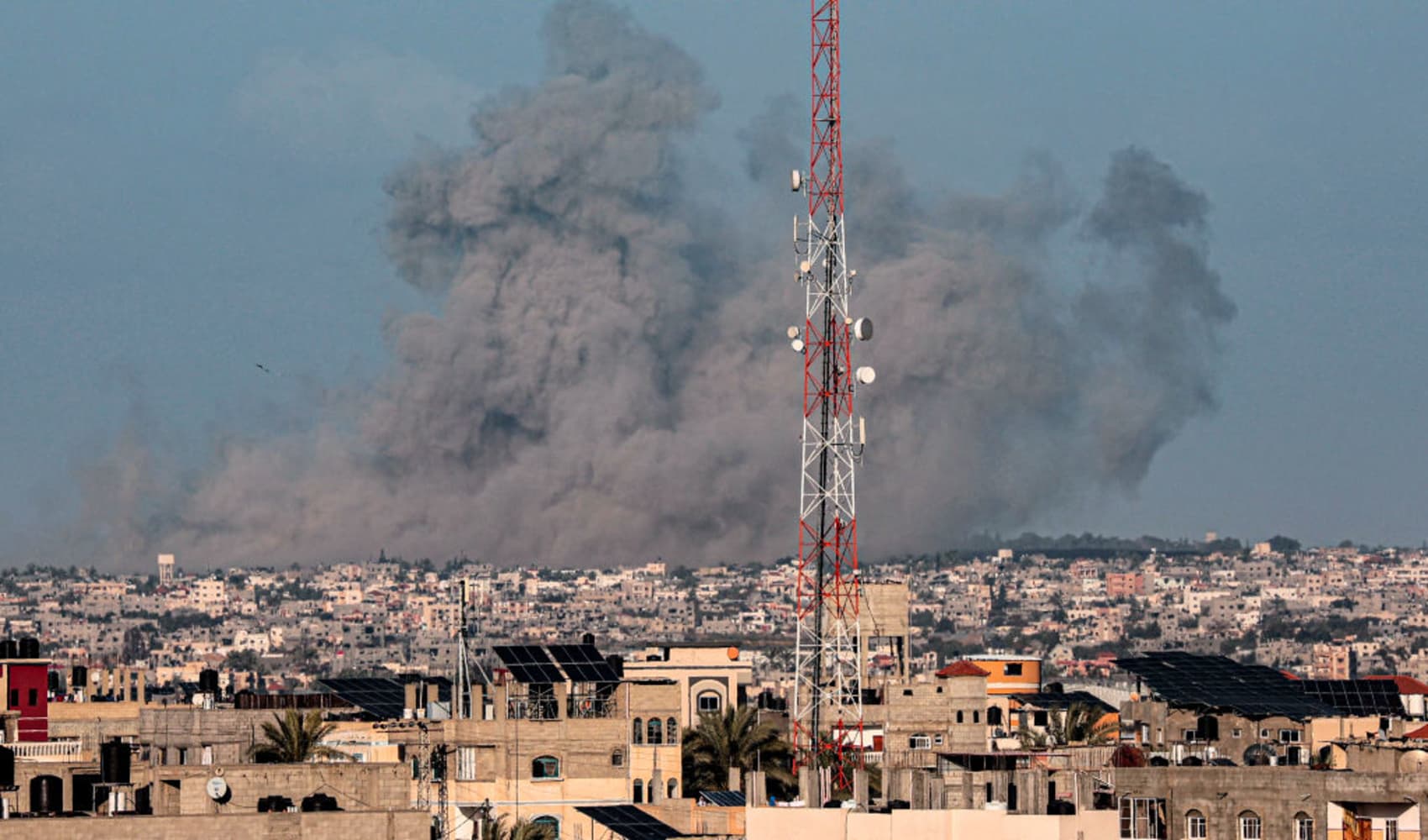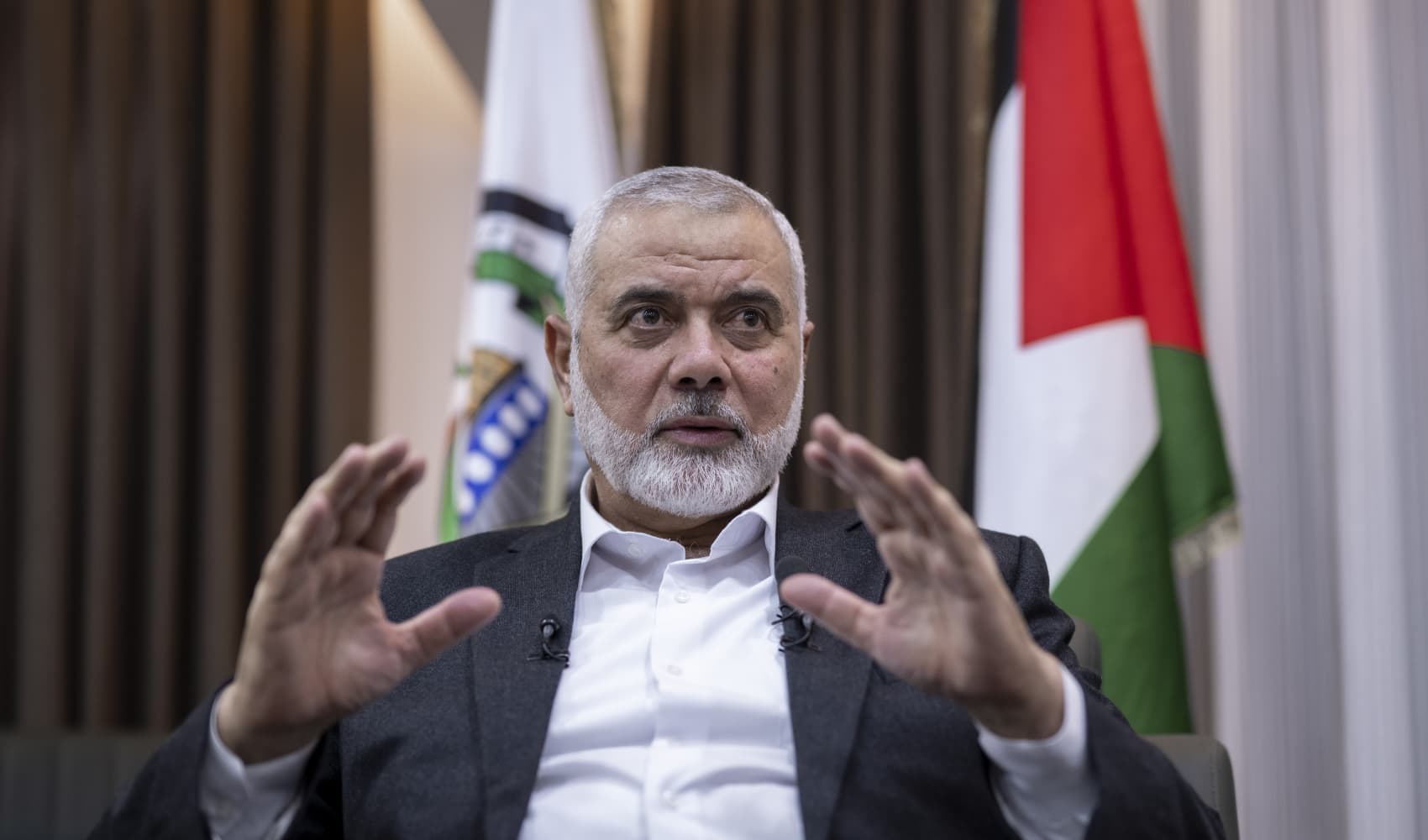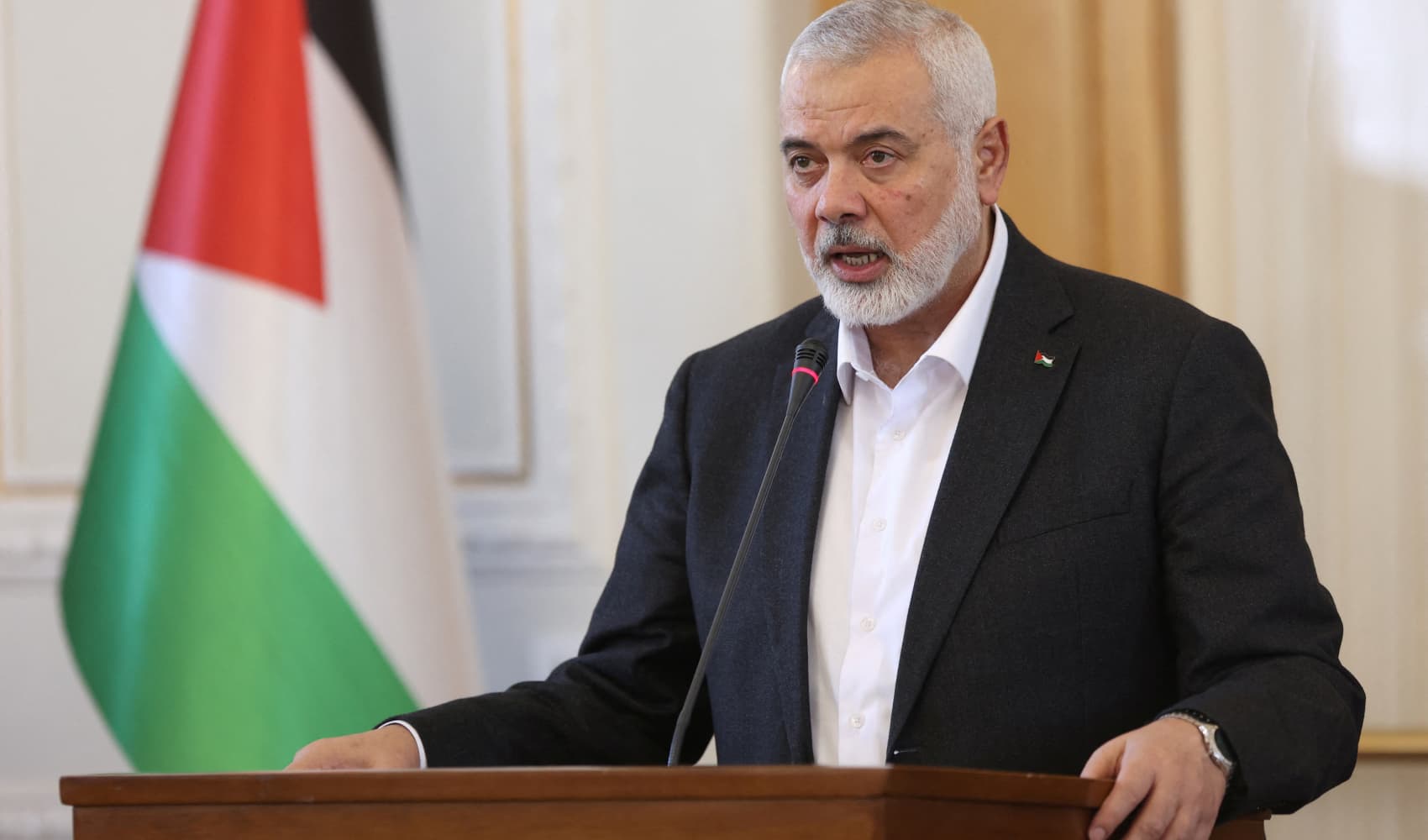
Passengers whose flights were cancelled, wait at the departure terminal ground of Rafik Hariri International Airport, in Beirut, Lebanon, Monday, Monday, Aug. 5, 2024. Turkey and Japan became the latest countries to urge their citizens to leave Lebanon amid rising tensions with Israel following last week’s airstrike in Beirut that killed a top Hezbollah military commander. Fears of an escalation in the simmering conflict between Hezbollah and Israel have prompted some airlines to cancel flights to Lebanon.
The Lebanese militant group Hezbollah said it launched a drone attack early Monday on northern Israel that the Israeli military said wounded two Israeli troops. The violence came amid fears of an all-out regional war following the killings last week of a senior Hezbollah commander in Lebanon and Hamas’ top political leader in Iran.
The Iranian-backed Hezbollah said it targeted a military base in northern Israel in response to “attacks and assassinations” by Israel in several villages in southern Lebanon. The attack did not appear to be the more intense retaliation that's expected from Iran and its allied militias.
Israel and Hezbollah have exchanged near-daily strikes for the past 10 months during the war in Gaza. But last week’s assassinations of Hamas political leader Ismail Haniyeh in Iran’s capital and Hezbollah commander Fouad Shukur in Beirut sent regional tensions soaring.
The head of Iran’s paramilitary Revolutionary Guard threatened Israel on Monday over the assassination of Haniyeh, warning that Israel was “digging its own grave” with its actions against Hamas.
Get Tri-state area news delivered to your inbox. Sign up for NBC New York's News Headlines newsletter.
Israel's defense minister says the military is ready for a “swift transition to offense.”
US & World
___
Here’s the latest:
Biden will speak with Jordan's king and meet with his national security team
President Joe Biden and Vice President Kamala Harris were scheduled to consult Monday with the White House national security team. And Biden will speak with King Abdullah II of Jordan, whose foreign minister made a rare visit to Iran over the weekend.
The activity follows a weekend of outreach by Secretary of State Antony Blinken and others in the Biden administration to Western and Middle East allies and partners as the U.S. tries to prepare for any Iranian retaliation to the killing of Hamas' political leader in Tehran last week. Iran has blamed Israel.
Blinken on Sunday told foreign members in the Group of Seven economic powers that Iran’s response could come in as soon as 24 to 48 hours.
Iran state media say secretary of Russia’s Security Council has arrived for talks
Iran’s state news agency says the secretary of Russia’s Security Council, Sergei Shoigu, has arrived in Tehran for talks on bilateral and international issues.
The IRNA report did not elaborate, but Russia’s state Tass and RIA Novosti news agencies reported that Shoigu was scheduled to meet with Iranian President Masoud Pezeshkian; secretary of the Supreme National Security Council, Ali Akbar Ahmadian; and chief of the Iranian military’s General Staff, Mohammad Bagheri.
Diplomatic efforts have increased after the assassination last week of Hamas political leader Ismail Haniyeh in Tehran. Iran has blamed Israel and vowed to retaliate.
In the News
Head of the U.S. Central Command is in the Middle East, official says
A U.S. defense official says the head of the U.S. Central Command, Gen. Eric Kurilla, is in the Middle East region.
The official wouldn’t say where specifically Kurilla is, but added that he “often visits the region to work and consult with regional partners.” The official spoke on condition of anonymity to discuss travel not yet made public.
The United States and allies have been preparing to defend Israel from an expected counterstrike from Iran and its allies and prevent a wider regional conflict after the killings last week of a senior Hezbollah commander in Lebanon and Hamas’ top political leader in Iran. Iran and its allies have blamed Israel and threatened retaliation.
— Lolita Baldor
Israel's defense minister says the military is ready for ‘swift transition to offense’
Israel’s defense minister says the military is prepared for a “swift transition to offense” as the country braces for an Iranian attack after the killing of Hamas’ political leader in Tehran.
Defense Minister Yoav Gallant spoke Monday at a briefing with air force officials. “We must be prepared for anything – including a swift transition to offense," he said.
Iran has said it is planning to respond with “power and decisiveness” to the killing of Hamas leader Ismail Haniyeh last week, which it blamed on Israel. Israel has neither confirmed nor denied responsibility. The escalating threats have raised fears of an all-out war in the Middle East.
Israeli airstrike kills 5 in Hamas-run police force while securing aid convoy
Palestinian officials say an Israeli airstrike has killed five members of Gaza’s Hamas-run police force who were securing an aid convoy. Another two policemen were wounded in Monday’s strike, according to records at the Al-Aqsa Martyrs Hospital in the central town of Deir al-Balah, where the casualties were taken.
Hamas has ruled Gaza since seizing power from rival Palestinian forces in 2007. It operates a police force numbering in the tens of thousands that provided a high degree of public security before the war. But the police have largely disappeared as Israel has targeted them with airstrikes, contributing to the collapse of law and order and hindering aid delivery to the enclave.
Israel does not differentiate between Hamas’ armed wing and its government. It says it is committed to destroying both after Hamas’ Oct. 7 attack that ignited the war. It also accuses Hamas of hijacking aid for its own purposes.
Aid groups say they have struggled to deliver desperately needed food and supplies because of Israeli restrictions, ongoing fighting and the collapse of public order.
Also in the News
Israel returns more than 80 bodies to the Gaza Strip, Palestinian official says
A Palestinian official says Israel has returned more than 80 bodies to the Gaza Strip.
The identities of the deceased and the cause of death were not immediately known.
Over the course of its nearly 10-month offensive in Gaza, the military has exhumed remains as it searches for the bodies of hostages taken in Hamas’ Oct. 7 attack, which ignited the war.
Weam Fares, a spokesperson for the Nasser Hospital in southern Gaza, says 84 bodies were handed over at the Kerem Shalom crossing on Monday and were taken directly for burial. The hospital did not provide further details.
The Israeli military did not respond to a request for comment.
Associated Press reporters saw the bodies being brought to a cemetery in a container truck belonging to a private company. They were buried in a mass grave.
The International Committee of the Red Cross said it was not involved in the transfer.
Israeli military says Palestinian militants fired at least 15 projectiles into Israel from Gaza
The Israeli military says Palestinian militants fired at least 15 projectiles into Israel from Gaza, and first responders say one person was lightly wounded.
Rocket and mortar attacks from Gaza have dwindled as Israel has waged its massive offensive there in response to Hamas’ Oct. 7 attack. But militants are still able to regularly fire short-range projectiles on Israeli communities and army bases near the border.
Most rockets fired from Gaza are intercepted or fall in open areas, and they rarely cause casualties or damage. Israel’s Magen David Adom rescue service says one person was lightly wounded in Monday’s barrage.
Israel has vowed to continue the war until it has eliminated Hamas’ military and governing capabilities.
TEHRAN, Iran — Iran has vowed to respond with “power and decisiveness” to the targeted killing of Hamas’ top political leader, which it blamed on Israel.
The killing of Ismail Haniyeh in a Tehran explosion last week has raised fears of a major retaliatory attack and the outbreak of a wider war pitting Israel and the United States against Iran and allied armed groups across the Middle East.
Nasser Kanaani, the spokesperson for Iran’s Foreign Ministry, said Monday that Iran has “the intrinsic right to provide for its own security and punish the aggressor,” and “will definitely take serious deterrent action with power and decisiveness.” He said it would be acting in accordance with international law and the right of self-defense.
He added, however, that Iran “is not after intensifying tension in the region.” He urged the international community to support Iran in punishing Israel.
On Saturday, Iran said a short-range projectile was behind the killing of Haniyeh, who was in Iran to attend the inauguration ceremony of President Masoud Pezeshkian.
Iran says Israel carried out the attack with U.S. support and has vowed to avenge it. Israel has not said whether it was involved.
Iran vows to respond with ‘power and decisiveness’ to killing of Hamas' top political leader
An Israeli airstrike killed an official in the Hamas-run government in Gaza who Israel said was also involved in militant activities.
Hamas confirmed that Abdel-Fattah al-Zariai was killed alongside his mother in an airstrike on Sunday. In a statement of mourning, it identified him as the undersecretary of its Economy Ministry and said he had held other “honorable positions” without referring to any militant role.
The Israeli military identified him as the economy minister and said he also worked in the manufacturing department of Hamas’ armed wing. It said he was involved in seizing humanitarian aid that entered Gaza and distributing it for militant purposes, without providing evidence.
Hamas seized power in Gaza in 2007 in a week of deadly clashes with forces loyal to the Western-backed Palestinian Authority and dominated by the secular Fatah party.
Hamas established its own government with ministries and tens of thousands of civil servants who provided public services. It also operated a police force.
The government has largely melted away in the war triggered by Hamas’ Oct. 7 attack into Israel, but the militant group still exerts control on the ground.
Iranian Revolutionary Guard chief says Israel is ‘digging its own grave’
The head of Iran’s paramilitary Revolutionary Guard threatened Israel on Monday after the assassination of Hamas leader Ismail Haniyeh in Tehran.
Gen. Hossein Salami, speaking to journalists at an event, warned that Israel was “digging its own grave” with its actions in its war against Hamas in the Gaza Strip, and that it is suspected of carrying out Haniyeh’s killing.
“When they receive a blow, they will notice they are making mistakes. They are making mistakes all the time,” Salami said in his speech at the Day of the Journalists event. “They will see the result of their mistake. They will see when, how and where they will get their response.”
Salami also touched on a long-held suspicions about an Israeli assassination program targeting Iran’s nuclear scientists amid concerns over the country’s atomic program. Iran now enriches uranium closer than ever to weapons-grade levels, but maintains its program is peaceful. U.S. intelligence services don’t believe Iran is actively pursuing the bomb, but a nuclear-armed Tehran remains a top fear for Israel.
“Israel is the cradle of terrorism and it has been created out of killing and murder,” he said. “They think they can kill the nuclear scientists of another country and impede that country’s path toward peaceful nuclear technology. They think that by killing the leader of a resistance group ... in another country will give them more time to live.”
He added: “They are just digging their own grave."
Lebanese state media says Israeli drone strike kills 2 in southern Lebanon
Lebanon’s state-run National News Agency says an Israeli drone strike near a cemetery in a southern village killed two people, including a paramedic.
The agency did not give further details about the Monday morning strike in the village of Meissa al-Jabal. It said one of the dead was a member of the Islamic Risala Scout Association paramedic group. The group identified the member killed as Mohammed Fawzi Hamadi.
Tensions in the region have risen sharply since last week after an Israeli airstrike in Beirut killed Fouad Shukur, a top commander with the militant Hezbollah group.
Hezbollah leader Hassan Nasrallah vowed that the group will retaliate against Israel.
Australia lifts terrorism threat level from ‘possible’ to ‘probable,’ but says no specific threat
The Australian government on Monday elevated the nation’s terrorism threat alert level from “possible” to “probable,” citing concerns about increasing radicalization among young people and community tensions over the Israel-Hamas war.
It is the first time the threat level has been elevated to the midpoint of the five-tier National Terrorism Threat Advisory System since November 2022. The level had been “probable” the previous eight years.
But Prime Minister Anthony Albanese added that while government officials think the current climate makes terrorism an increased danger, they didn’t know of any specific threats.
“I want to reassure Australians probable does not mean inevitable, and it does not mean there is intelligence about an imminent threat or danger,” Albanese told reporters.
He said the government was acting on the advice of the Australian Security Intelligence Organization, the nation’s main domestic spy agency known as ASIO.
“The advice that we’ve received is that more Australians are embracing a more diverse range of extreme ideologies and it is our responsibility to be vigilant,” Albanese said.
TEL AVIV, Israel — Israel is already in a “multi-front war” with Iran and its proxies, Israeli Prime Minister Benjamin Netanyahu told a Cabinet meeting Sunday, as the United States and allies prepared to defend Israel from an expected counterstrike and prevent an even more destructive regional conflict.
Tensions have soared following nearly 10 months of war in Gaza and the killing last week of a senior Hezbollah commander in Lebanon and Hamas’ top political leader in Iran. Iran and its allies have blamed Israel and threatened retaliation. Hamas says it has begun discussions on choosing a new leader.
Netanyahu said Israel was ready for any scenario. Jordan’s foreign minister was making a rare trip to Iran as part of diplomatic efforts — “We want the escalation to end,” Ayman Safadi said — while the Pentagon has moved significant assets to the region.




